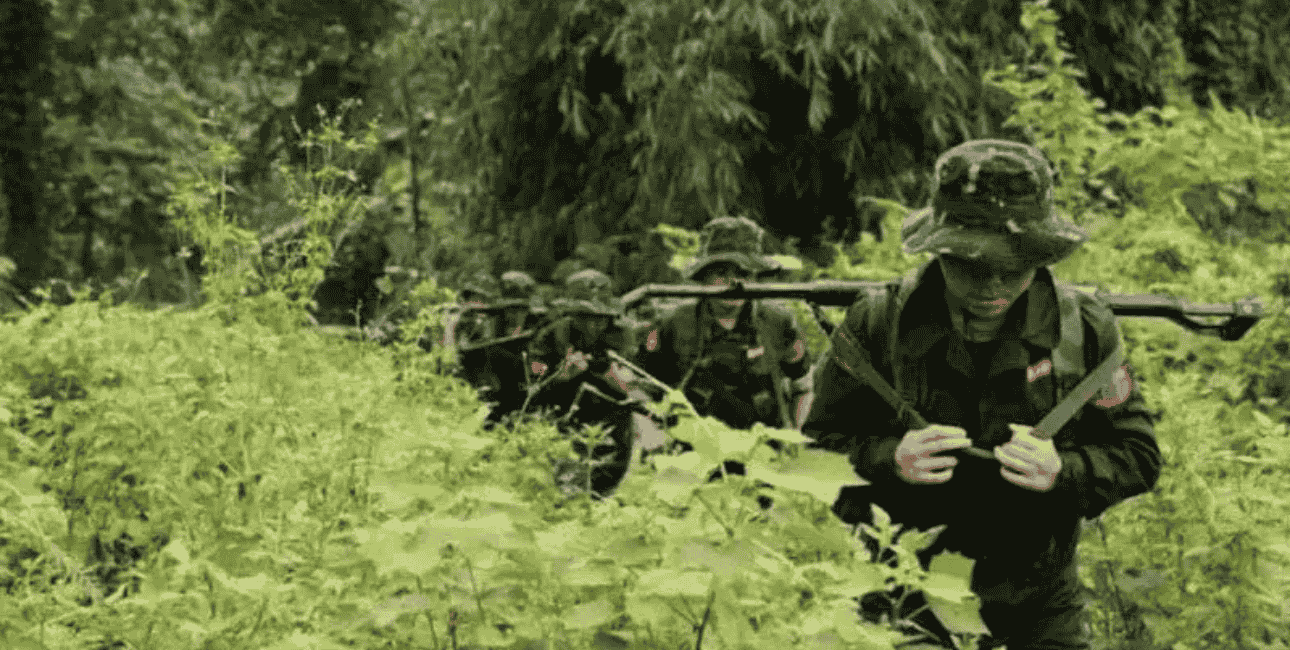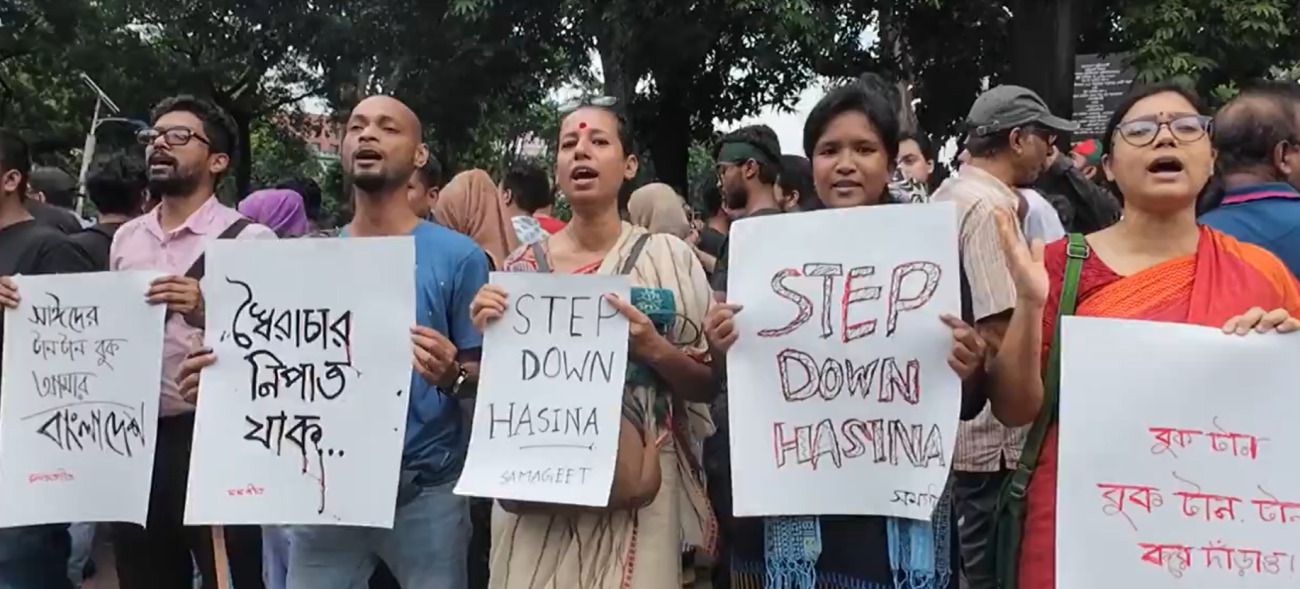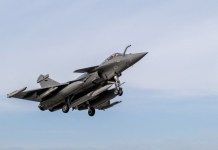The rebel Arakan Army received a major success that could redraw the South Asian map when it took over the Western Command Headquarters of the resource-rich Rakhine State of Myanmar. The rebel army is now eyeing the Junta regime’s weapons factories along the Irrawaddy River to help it in resistance attacks.
The Western Command was the Myanmar military’s second regional command to fall into the Ethnic Armed Organisation’s (EAO) hands in 2024. The Myanmar military had earlier lost control of the Northeastern command in Lashio to the Myanmar National Democratic Alliance Army (MNDAA) in August 2024.
Now, this has exposed Myanmar’s 25 weapons factories to the rebels. There are 15 factories in Magwe Region, seven in Bago Region, two in Naypyitaw’s Tatkone, and one in Yangon’s Taikkyi Township. The weapons factories in Magwe and Bago are located on the west bank of the Irrawaddy River. These factories manufacture rocket-propelled grenades and ammunition of large caliber weapons.
These factories were set up in the region as Rakhine was not facing armed conflict, and people from Rakhine served in the Myanmar military. Building factories in the Rakhine with the Arakan mountains in the west and the Irrawaddy River in the east seemed like a safe strategy.
The access to the region with the weapons factories is by Ann-Padan Road, which links the Rakhine mountains with the Magwe region. The anti-regime forces had seized control of the Ann-Padan Road, where Junta’s Artillery Battalion headquarters 905 and Artillery Battalion 375 are located. Controlling these battalions will bring the weapon factories within the reach of the Arakan Army.

The Myanmar military’s coup in 2021 that ousted the democratically elected government resulted in protracted political turmoil in the country. Mass protests were triggered across the country, especially in the regions dominated by ethnic minorities.
A three-pronged alliance of opposition forces, including the Myanmar National Democratic Alliance Army (MNDAA), the Ta’ang National Liberation Army (TNLA), and the Arakan Army (AA), launched a large offensive in Shan state in late 2023. The Shan state borders China. And now the rebels have secured control over vast swathes of territory in the northern Shan state and the western Rakhine state.
The fall of Rakhine state means that the Arakan Army has gained full control of the 271-kilometer (168-mile) long border with Bangladesh, making it the first full border of Myanmar with any country to fall.
There have been reports that the Arakan Army, the largest of the rebel groups, now controls areas inside Bangladesh along the Myanmar-Bangladesh border. This could lead to a fight between the Bangladesh Army and the Arakan Army, further exacerbating the security crisis in the region.
This comes after Bangladesh’s Prime Minister, Sheikh Hasina, was forced to resign under pressure from the military following escalating clashes between police and anti-government protesters that resulted in scores of deaths. Many political commentators called the protestors “terrorists disguised as students.”

The Geopolitical Implications Of Arakan Army’s March To Dominance
The developments in the beleaguered country will have far-reaching repercussions for the geopolitics in South Asia. The Rakhine state is rich in natural resources and is a gateway for China as it provides an alternative route to the Strait of Malacca. India also has high stakes in having a politically stable Myanmar.
Both India and China have maintained ties with the military regime since the 2021 takeover and toppling of the civilian government of Aung San Suu Kyi. The two countries have not followed Western sanctions despite political persecution and detentions in the country.
The Western Command of Myanmar has been responsible for the defense and security of Southern Chin State, the Myanmar-Bangladesh border, and parts of the Myanmar-India border. The Western Command had played an instrumental role in securing investments from India for the Kaladan Multi-Modal Transit Transport Project in Rakhine State.
The Kaladan Multi-Modal Transit Transport has been a key piece of India’s Act East Policy. It was envisaged to provide an alternate connectivity to India’s landlocked northeastern region.
The project intended to reduce India’s dependence on Bangladesh for its transit routes. Now, India will have to think about whether it would want to engage with the Arakan Army, a non-state actor, to expedite the already delayed project work. The project started 13 years ago, but the conflict has delayed it many times.
The Kaladan project has two parts – a road and an inland waterway to link the state of Mizoram in India to Sittwe Port in Rakhine State.
The 68-mile stretch from the India-Myanmar border is yet to be constructed as it traverses the conflict-hit Rakhine state. The other segment is the construction of the Sittwe Port at the mouth of the Kaladan River in Rakhine State and a river terminal at Paletwa. This has already been completed in Myanmar.
In 2023, the Sittwe Port was inaugurated and received the first Indian cargo ship.
India has been supporting the junta despite the West’s displeasure about the world’s largest democracy not giving a helping hand to the struggling democratic movement in Myanmar led by Nobel Peace Laureate Aung San Suu Kyi.
India has also been supplying arms to Myanmar. It was the third-largest supplier of arms before the February 2021 military coup. According to the UN, sales from Indian firms amounted to US$ 51 million in weapons and materiel for the junta since the coup.
India is also concerned about weapons with the rebel groups that could land in the hands of terrorist groups operating in the country’s northeastern region.
New Delhi has already tightened the rules for the movement of people from either side of the border in India and Myanmar. Under the new rules, the movement of people has been restricted from 16 km under the free movement regime (FMR) to 10 km now on either side.
China has also maintained ties with Myanmar. Since the 2021 military coup, China has transferred military jets to the Junta. In fact, China is Myanmar’s biggest trade partner. Beijing has also pumped billions into the country’s oil and gas sector and other physical infrastructure.
Chinese officials also held talks with two of the Arakan Army’s alliance partners to broker ceasefires with the junta.
China had also begun developing Kyaukphyu as a deep-water port. It is located not very far from the Kaladan port at Sittwe.
In December 2023, China signed an agreement to develop the deep-water port, where China’s state-owned Citic Group will have a 70 percent stake in the project. The port will allow China to bypass the South China Sea for oil imports and gain access to the Indian Ocean. It is the gateway of the 1,700-km China-Myanmar Economic Corridor.




